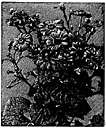ragwort
Also found in: Thesaurus, Legal, Encyclopedia, Wikipedia.
rag·wort
(răg′wûrt′, -wôrt′)n.
Any of various plants in the composite family, chiefly of the genera Senecio and Packera, having yellow flower heads. S. jacobaea, a European species poisonous to livestock, is widely naturalized in North America and elsewhere.
[From the ragged shape of its leaves.]
American Heritage® Dictionary of the English Language, Fifth Edition. Copyright © 2016 by Houghton Mifflin Harcourt Publishing Company. Published by Houghton Mifflin Harcourt Publishing Company. All rights reserved.
ragwort
(ˈræɡˌwɜːt)n
(Plants) any of several plants of the genus Senecio, esp S. jacobaea of Europe, that have yellow daisy-like flowers: family Asteraceae (composites). See also groundsel1
Collins English Dictionary – Complete and Unabridged, 12th Edition 2014 © HarperCollins Publishers 1991, 1994, 1998, 2000, 2003, 2006, 2007, 2009, 2011, 2014
rag•wort
(ˈrægˌwɜrt, -ˌwɔrt)n.
any of various composite plants of the genus Senecio, usu. bearing yellow, slender-rayed flower heads.
[1325–75]
Random House Kernerman Webster's College Dictionary, © 2010 K Dictionaries Ltd. Copyright 2005, 1997, 1991 by Random House, Inc. All rights reserved.
ThesaurusAntonymsRelated WordsSynonymsLegend:
Switch to new thesaurus
| Noun | 1. |  ragwort - widespread European weed having yellow daisylike flowers; sometimes an obnoxious weed and toxic to cattle if consumed in quantity ragwort - widespread European weed having yellow daisylike flowers; sometimes an obnoxious weed and toxic to cattle if consumed in quantitygenus Senecio, Senecio - enormous and diverse cosmopolitan genus of trees and shrubs and vines and herbs including many weeds weed - any plant that crowds out cultivated plants |
| 2. | ragwort - American ragwort with yellow flowers wild flower, wildflower - wild or uncultivated flowering plant genus Senecio, Senecio - enormous and diverse cosmopolitan genus of trees and shrubs and vines and herbs including many weeds |
Based on WordNet 3.0, Farlex clipart collection. © 2003-2012 Princeton University, Farlex Inc.
Translations
Collins Spanish Dictionary - Complete and Unabridged 8th Edition 2005 © William Collins Sons & Co. Ltd. 1971, 1988 © HarperCollins Publishers 1992, 1993, 1996, 1997, 2000, 2003, 2005
Collins Italian Dictionary 1st Edition © HarperCollins Publishers 1995